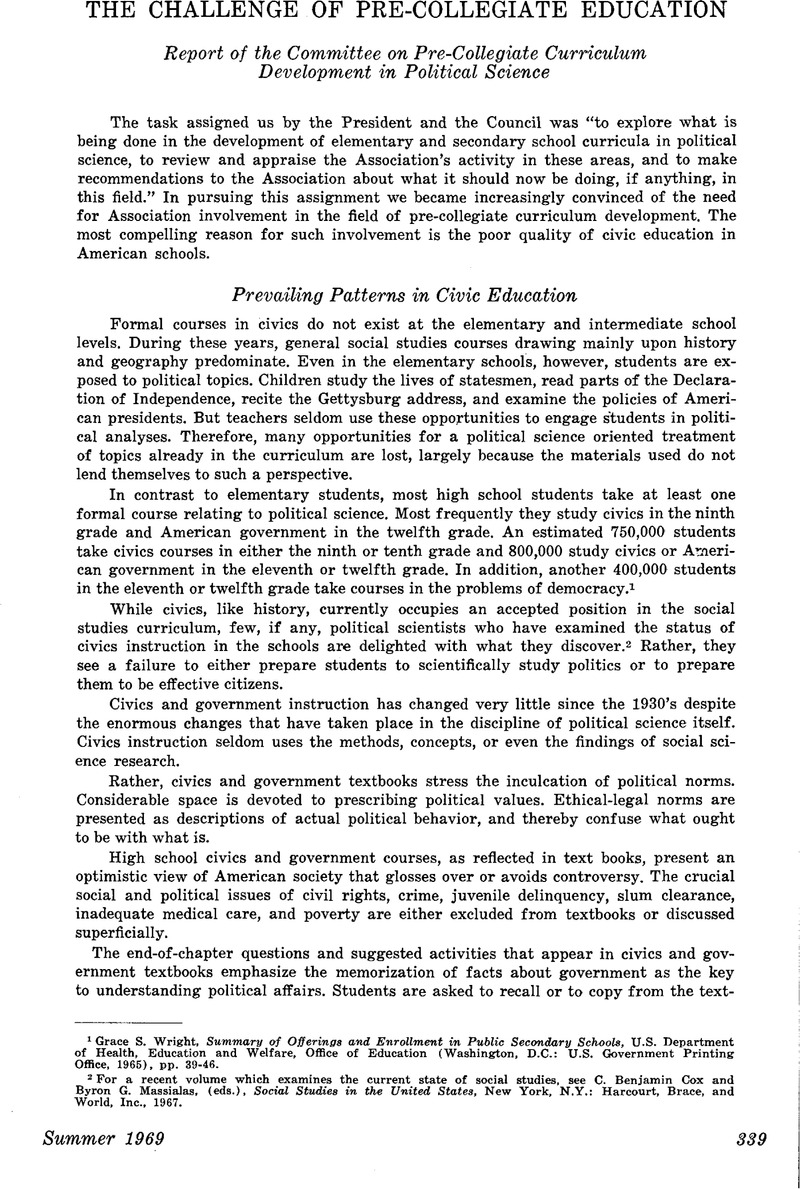No CrossRef data available.
Published online by Cambridge University Press: 28 November 2022

1 Wright, Grace S., Summary of Offerings and Enrollment in Public Secondary Schools, U.S. Department of Health, Education and Welfare, Office of Education (Washington, D.C.: U.S. Government Printing Office, 1965), pp. 39–46.Google Scholar
2 For a recent volume which examines the current state of social studies, see Benjamin Cox, C. and Massialas, Byron G., (eds.), Social Studies in the United States, New York, N.Y.: Harcourt, Brace, and World, Inc., 1967.Google Scholar
3 The wording of this, as well as the two preceding paragraphs is drawn largely from John J. Patrick, “The Implications of Political Socialization Research for Curriculm Development and Instruction in the Social Studies,” a paper prepared for delivery at the 64th Annual Meeting of the American Political Science Association, Washington, D.C., September 3–7, 1968. We thank Mr. Patrick for allowing us to draw from his paper.
4 “Political Socialization and the High School Civics Curriculum in the United States,” The American Political Science Review, LXII, 3 (September, 1968), pp. 852–867.
5 “The Case of the Reluctant Consultant: On Moving from What We Know to What We Ought to Do,” The School Review, LXXVII, 1 (March, 1969), pp. 49–53.
6 The Development of Political Science: From Burgess to Behavtoralism, Boston, Mass.: Allyn and Bacon, Inc., 1967, pp. 45–48; 80–83; 135–138; 195–199; 207–208.
7 “A History of The American Political Science Association’s Activities in the Field of Secondary Education in Government, 1906–1962,” The American Political Science Association, February 21, 1962 (mimeo). Also see memorandum by Evron M. Kirkpatrick to Howard Mehlinger, January 23, 1969 and memorandum by Earl M. Baker prepared for the June, 1969 conference of the Consortium of Professional Associations for Study of Special Teacher Improvement Programs.
8 “History”, p. 1.
9 Goals for Political Science, New York, N.Y.: William Sloane Associates, Inc., 1951.